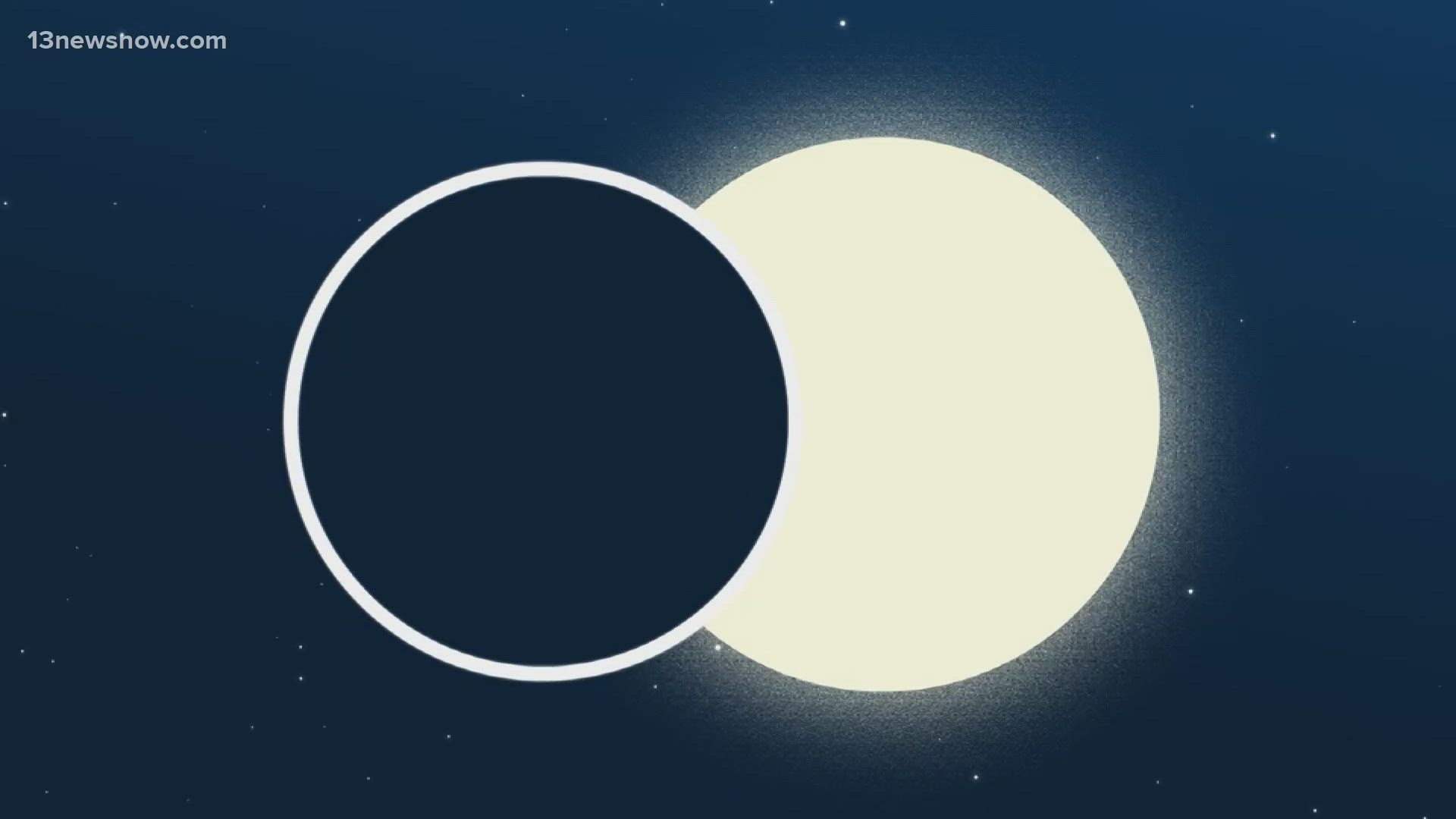NORFOLK, Va. — In about two weeks, millions of people across the country will get the chance to view the 2024 total solar eclipse.
The total solar eclipse will occur on April 8, 2024, spanning much of the central and eastern United States, from Texas to Maine. Let's talk about how an eclipse forms.
What causes a solar eclipse?
The sun is the center of our universe, and due to its intense gravitational pull, the Earth revolves around the sun. In the same way, Earth's gravitational pull makes the moon revolve around it. Depending on where the moon is in its revolution will determine its phase.
During a solar eclipse, the moon has to be in the new moon phase. That means the sunlight shining on the moon is facing away from Earth, causing the moon to appear dark from our point of view.
RELATED: Fill up your gas tank and prepare to wait. Some tips to prepare for April's total solar eclipse
During a new moon, the moon is sandwiched between the sun and the Earth. If the moon is directly in line with the sun and Earth, that's when a total eclipse forms.
The moon casts two shadows onto Earth. The bigger but partial shadow is called the penumbra. The small but fuller shadow is called the umbra. If you happen to be caught underneath the umbra during an eclipse, you'll experience totality. If you're underneath the penumbra, you'll only see a fraction of the eclipse.
How to safely look at the April 8, 2024 solar eclipse
When you're viewing an eclipse, always make sure to protect your eyes. Here are a few solar eclipse do's and don'ts.
- Don't look up at the sun during an eclipse. This can damage your eyes.
- Don't wear sunglasses as your "protective" eyewear when viewing the eclipse. Sunglasses will not prevent eye damage.
- Do purchase special eclipse sunglasses with solar filters. These glasses will prevent eye damage and can be found online for less than $15.
- Do use a pinhole or binoculars to view the eclipse indirectly.
What is Virginia's weather for the April 8, 2024 solar eclipse?
Now, the next question is if we can even see the eclipse due to the weather. Cloudy skies could prevent eclipse viewing. So, stay tuned for the April 8th forecast.
When is the next solar eclipse?
The next total eclipse is not until Aug. 12, 2026, if you miss this year's eclipse due to cloudy skies.

